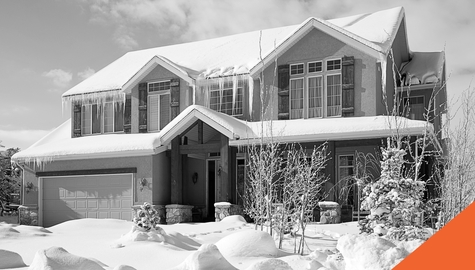The Fires Blazing Across Canada: Impacts on Health and Daily Life
Friday, 9 June 2023
The recent surge in wildfires across Canada has brought about significant concerns regarding the impacts on both individuals directly affected by the fires and those indirectly affected by the resulting smoke. Beyond the immediate threat to life and property, these fires have far-reaching consequences, particularly when it comes to health and overall well-being.
How Poor Air Quality Affects Your Health
When wildfires ravage vast areas, they release a plethora of harmful pollutants into the air. The resultant decrease in air quality poses significant risks to human health. Particulate matter (PM), which includes smoke and ash particles, can penetrate deep into the respiratory system, triggering a range of health issues. The inhalation of such pollutants can lead to respiratory problems, exacerbate existing conditions like asthma and allergies, and even cause cardiovascular issues. Additionally, prolonged exposure to smoke-filled air can have adverse effects on mental health, leading to anxiety, stress, and reduced cognitive function.
Understanding the Air Quality Index (AQI)
The Air Quality Index (AQI) serves as a measure of air pollution levels and provides a clear indication of the associated health risks. Visualizing the AQI as a yardstick ranging from 0 to 500, we can better understand the impact of air pollution on our well-being. Additionally, each category is assigned a specific color, making it easier for individuals to quickly assess whether air quality in their communities is reaching unhealthy levels.
In the AQI system, each pollutant corresponds to a specific value. Generally, an AQI value of 100 aligns with the national ambient air quality standard for short-term protection of public health. AQI values below 100 are generally considered satisfactory. However, as the AQI surpasses 100, air quality becomes unhealthy, initially for specific groups of people who are more sensitive to pollutants, and eventually for everyone as the AQI value continues to rise.
How to Improve Your AQI During Canada’s Wildfires
- Stay updated: Stay informed about the current air quality conditions by checking the Air Quality Index (AQI) regularly. Local authorities and weather services often provide updates and advisories during wildfire events.
- Minimize outdoor activities: Limit your time spent outdoors, especially during times when the air quality is poor. Reduce physical exertion, which can lead to increased inhalation of pollutants.
- Create a clean indoor environment: Keep windows and doors closed to prevent smoke from entering your home. Use air purifiers with HEPA filters to improve indoor air quality. Seal any gaps or cracks that could allow smoke to enter.
- Avoid indoor pollution sources: Minimize the use of candles, tobacco, and other sources of indoor air pollution. These can further deteriorate indoor air quality when combined with wildfire smoke.
- Stay hydrated: Drinking plenty of water can help reduce respiratory irritation and keep your airways moist. It can also support your body's natural defenses against pollutants.
Keeping You and Your Family Safe During Wildfires
For individuals directly affected by wildfires, life safety is of utmost concern. Staying informed about evacuation orders, emergency protocols, and designated safe zones is essential. It is crucial to have a well-defined evacuation plan in place, including communication strategies and arrangements for vulnerable family members or pets. Creating a "go bag" with essential items such as medications, important documents, and emergency supplies can help ensure preparedness during such situations.
Pet Safety and Wildfires
During wildfires, pets are vulnerable to the adverse effects of smoke and evacuation procedures. It is essential to include your pets in evacuation plans and ensure their safety. Keep pet carriers, leashes, and necessary supplies readily available. In case of evacuation, identify pet-friendly shelters or arrange temporary accommodation with friends or family. It's worth noting that smoke inhalation affects pets similarly to humans, so limit outdoor activities and create a comfortable environment indoors.
Auto and Home Safety Precautions
Wildfires can pose risks not only to human health but also to vehicles and homes. During fire seasons, it is advisable to keep vehicles parked in garages or covered areas whenever possible to protect them from ash, smoke, and potential damage. Furthermore, maintaining a well-prepared and fire-resistant home can significantly reduce the risk of damage or destruction. Clearing combustible materials from the immediate vicinity of the property, ensuring proper ventilation systems, and having fire extinguishers readily available are vital steps to safeguard against wildfire threats.
How to Protect Yourself During Wildfires:
- Follow evacuation orders: If authorities issue evacuation orders, follow them promptly. Your safety should be the top priority during wildfires.
- Use N95 masks: When outdoors, especially in areas directly affected by smoke, wear N95 or N99 respirator masks to filter out fine particulate matter. These masks provide better protection than regular cloth masks.
- Create a personal emergency kit: Prepare an emergency kit with essential items such as medications, first aid supplies, and important documents. Include N95 masks, goggles, and gloves for protection during evacuation or outdoor activities.
- Stay indoors during peak pollution periods: Pay attention to the time of day when pollution levels are usually higher. Stay indoors during these peak periods, typically in the early morning and late evening.
- Seek cleaner air spaces: If you do not have air conditioning or air purifiers at home, consider seeking cleaner air spaces such as public buildings with filtration systems or community shelters during periods of poor air quality.
- Protect pets and vulnerable individuals: Take measures to protect your pets and individuals with pre-existing health conditions, as they can be more susceptible to the effects of poor air quality. Keep them indoors and ensure they have access to clean water.
Remember, it's important to follow the guidance and instructions provided by local authorities during wildfire events. Your safety and well-being should always take precedence.
With the increasing frequency and severity of wildfires across the country, it is essential to ensure that you have adequate insurance coverage. Protecting your home, belongings, and assets through comprehensive wildfire insurance can provide the financial support needed to rebuild and recover in the aftermath of a wildfire. If you reside in a high-risk area, it is even more important to review your insurance policy and consider additional coverage options specific to wildfires. Don't wait until it's too late – take proactive steps today to safeguard your future. Contact BIG to discuss your options and ensure that you have the right coverage in place. Your peace of mind and financial security are worth the investment.



